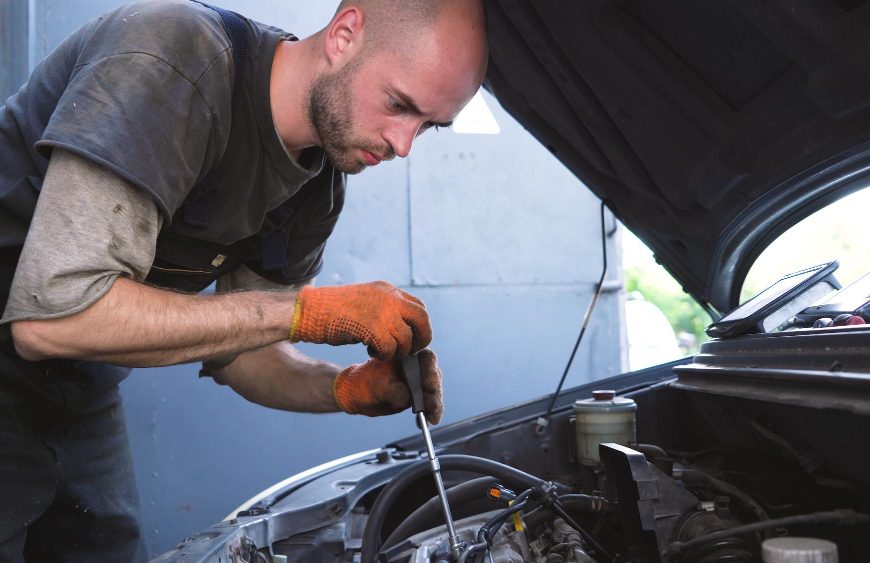- July 12, 2021
- By admin
- In Car maintenance, Car Services
- Tags engine air filters
- 1036
- 0

“The era we live in is revolutionary; technology has made life easier.” True, but at what cost? With the rise of the industrial world, we see the environment getting filled up with nothing but toxins.
Like your skin needs constant cleansing to stay hydrated and fresh, your car also deserves to be filtered out of impurities to remain functional. Let it be debris, dirt, pollutants, or other harsh containments in the air; engine air filters are the backbone of a vehicle’s health.
To change engine air filters is just like breathing a new life in your car, yet most drivers are ignorant of how profitable it can be to replace them on time.
When contaminants make your vehicle’s engine home and are not filtered out, the adverse effects on the engine’s functionality include overheating, engine exhaust, burnout, and even combusting. There’s no way you should leave your car’s engine like that.
So, let’s move to our topic of the day: what types of engine air filters are there,why to change them, and what good they bring to the sound condition of the vehicle in the long run!
There are four types of engine air filters in your car, primarily responsible for filtering out impurities and contaminants in their respective area:
Before we dive deep into the functions of each and explore why change engine air filters frequently, let’s look at the brighter side of consulting the user’s manual of your car. The vehicle’s structure, tough same, yet is built on different grounds – that is why the best insight you can get into your vehicle’s engine air filters without a professional assistant is through the owner’s manual.
Now, let’s move back to the filters.
Air works like oxygen for your car, and the vehicle’s combustion process – taking out energy from the fuel and air to run the vehicle – is affected if the air is polluted. Thus, the primary aim of an air filter is to ensure the safe consumption of air without the involvement of any environmental toxins. It includes dirt, debris, sand, pollen, harsh particles, and even insects.
In the air collection box of your vehicle, try removing the intake hose and then take out the air filter. Place in the light and see through it. If the rays are blocked or cannot pass through it, know that pollutants and toxins have occupied the filter, and it’s time to change it.
As evident by the name, the purpose of a cabin filter is to cleanse the air in the car’s interior cabin. The methods used by a cabin filter to remove dirt, debris, pollen, and dust are air conditioning, ventilating, and heating. The best thing about this filter is that it also excels in filtering out any odors, exhaust fumes, or gasses – which explains why it is one of the best types of engine air filters.
If you live in a highly polluted area, are allergic to pollutants, or suffer from respiratory issues, inspecting and replacing cabin filters must be done on time.
The cabin filter is directly related to the heating and cooling system in your car. If you see any problem in the smooth working of AC or notice any unusual, strong odor coming out of nowhere, or feel suffocation due to improper airflow, you should change your cabin filter.
The oil your car needs to run is filtered out of impurities through an oil filter. An engine’s satisfactory performance also depends on how purified the oil is. Since oil is required to lubricate different parts, it is prone to become contaminated during the process. An oil filter deep cleanses the oil and removes any dirt and debris particles, including metallic and oxidized particles.
Oil is a necessity in running a car yet gets impurified each time it runs through the engine. It is recommended to change the engine cabin filter every time you change the oil in your vehicle.
Fuel injectors are to spray fuel in the car engine. But when contaminated can also ruin the effective working of the engine, leading it to exhaust and eventually burn out. To avoid this, the fuel filter in your car kicks any harsh particles, dirt, and water out of the fuel.
The common symptoms of a bad fuel filter are slow ignition, sluggishness in the smooth working of the vehicle, and struggling to keep up the pace at low speeds. Furthermore, it is suggested to change your car’s engine fuel filter twice a year.
Hopefully, now you know how many types of engine air filters are there and their primary functions. The air filter cleanses the air in the combustion process. The cabin filter purifies the air in the interior of the car. The oil filter cleans the oil, while the fuel filter refines the fuel in the car engine.
Why change engine air filters?Because they play a significant role in stabilizing the sound state of your vehicle and securing it from ruin due to deteriorating parts. You should check on the engine air filters frequently and change them when needed. Or you can also read the user’s manual to understand even better!


